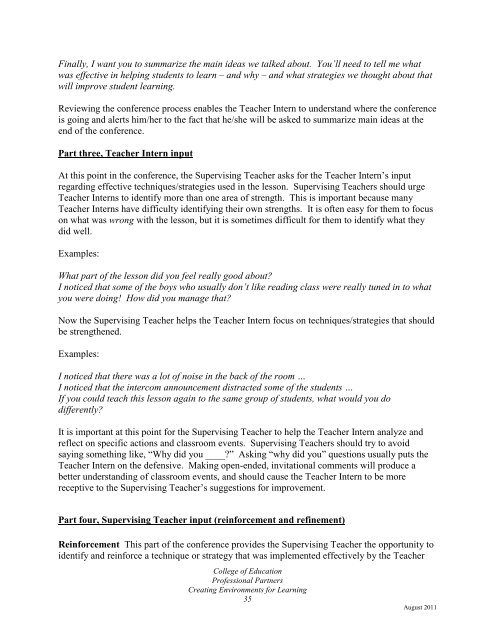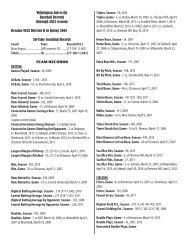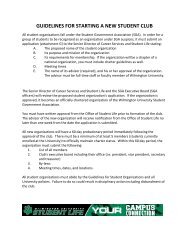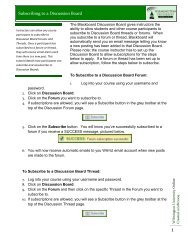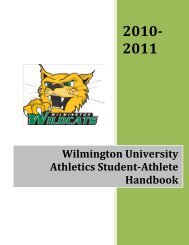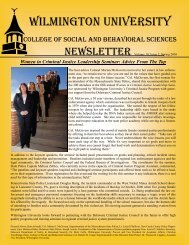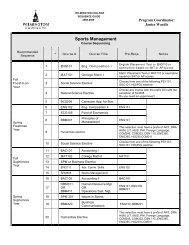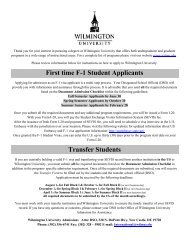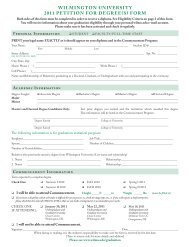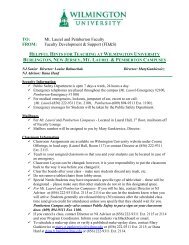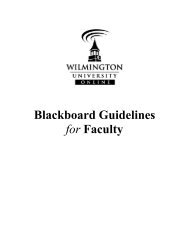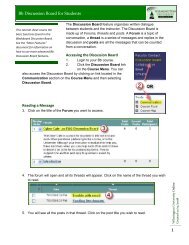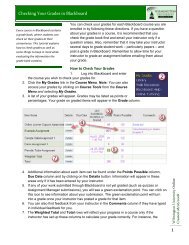handbook for cooperating teachers - Wilmington University
handbook for cooperating teachers - Wilmington University
handbook for cooperating teachers - Wilmington University
You also want an ePaper? Increase the reach of your titles
YUMPU automatically turns print PDFs into web optimized ePapers that Google loves.
Finally, I want you to summarize the main ideas we talked about. You‟ll need to tell me whatwas effective in helping students to learn – and why – and what strategies we thought about thatwill improve student learning.Reviewing the conference process enables the Teacher Intern to understand where the conferenceis going and alerts him/her to the fact that he/she will be asked to summarize main ideas at theend of the conference.Part three, Teacher Intern inputAt this point in the conference, the Supervising Teacher asks <strong>for</strong> the Teacher Intern’s inputregarding effective techniques/strategies used in the lesson. Supervising Teachers should urgeTeacher Interns to identify more than one area of strength. This is important because manyTeacher Interns have difficulty identifying their own strengths. It is often easy <strong>for</strong> them to focuson what was wrong with the lesson, but it is sometimes difficult <strong>for</strong> them to identify what theydid well.Examples:What part of the lesson did you feel really good about?I noticed that some of the boys who usually don‟t like reading class were really tuned in to whatyou were doing! How did you manage that?Now the Supervising Teacher helps the Teacher Intern focus on techniques/strategies that shouldbe strengthened.Examples:I noticed that there was a lot of noise in the back of the room …I noticed that the intercom announcement distracted some of the students …If you could teach this lesson again to the same group of students, what would you dodifferently?It is important at this point <strong>for</strong> the Supervising Teacher to help the Teacher Intern analyze andreflect on specific actions and classroom events. Supervising Teachers should try to avoidsaying something like, “Why did you ____?” Asking “why did you” questions usually puts theTeacher Intern on the defensive. Making open-ended, invitational comments will produce abetter understanding of classroom events, and should cause the Teacher Intern to be morereceptive to the Supervising Teacher’s suggestions <strong>for</strong> improvement.Part four, Supervising Teacher input (rein<strong>for</strong>cement and refinement)Rein<strong>for</strong>cement This part of the conference provides the Supervising Teacher the opportunity toidentify and rein<strong>for</strong>ce a technique or strategy that was implemented effectively by the TeacherCollege of EducationProfessional PartnersCreating Environments <strong>for</strong> Learning35August 2011


